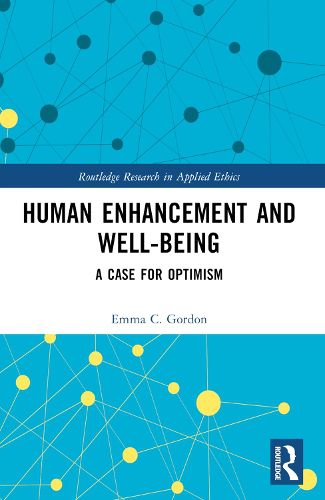Readings Newsletter
Become a Readings Member to make your shopping experience even easier.
Sign in or sign up for free!
You’re not far away from qualifying for FREE standard shipping within Australia
You’ve qualified for FREE standard shipping within Australia
The cart is loading…






New technologies and medicines make it increasingly possible to enhance human functioning in new ways: to become smarter, more emotionally attuned, and perhaps even morally better. But just because we can use the latest science to improve ourselves, should we?
This book has two main aims. First, it outlines and criticises the six main contemporary arguments for scepticism about the role of human enhancements in promoting well-being. These arguments concern, respectively, (i) the value of achievements, (ii) freedom, (iii) hyperagency, (iv) human nature, (v) authenticity, and (vi) inequality. It will be shown - for the first time in a book-length treatment - why the overarching bioconservative case against enhancement doesn't hold water. The second central aim of the book is positive; as we'll see, each of the bioconservative critiques considered and rejected will be shown to nonetheless motivate a distinctive kind of theoretical desideratum that a viable positive enhancement proposal should satisfy. The remainder of the book then defends a two-part enhancement proposal that will be shown to clearly satisfy the theoretical desiderata that emerged from reflecting on the earlier critique of bioconservativism. The first part of the positive proposal motivates and outlines the general role of an enhancement counsellor in facilitating voluntary enhancement; I then offer an applied case study of this role in the special case of enhancement for the purpose of facilitating romantic and parental relationships.
Human Enhancement and Well-Being: A Case for Optimism will be of interest to scholars and advanced students working in applied ethics, bioethics, philosophy of technology, philosophy of well-being, and social epistemology.
$9.00 standard shipping within Australia
FREE standard shipping within Australia for orders over $100.00
Express & International shipping calculated at checkout
New technologies and medicines make it increasingly possible to enhance human functioning in new ways: to become smarter, more emotionally attuned, and perhaps even morally better. But just because we can use the latest science to improve ourselves, should we?
This book has two main aims. First, it outlines and criticises the six main contemporary arguments for scepticism about the role of human enhancements in promoting well-being. These arguments concern, respectively, (i) the value of achievements, (ii) freedom, (iii) hyperagency, (iv) human nature, (v) authenticity, and (vi) inequality. It will be shown - for the first time in a book-length treatment - why the overarching bioconservative case against enhancement doesn't hold water. The second central aim of the book is positive; as we'll see, each of the bioconservative critiques considered and rejected will be shown to nonetheless motivate a distinctive kind of theoretical desideratum that a viable positive enhancement proposal should satisfy. The remainder of the book then defends a two-part enhancement proposal that will be shown to clearly satisfy the theoretical desiderata that emerged from reflecting on the earlier critique of bioconservativism. The first part of the positive proposal motivates and outlines the general role of an enhancement counsellor in facilitating voluntary enhancement; I then offer an applied case study of this role in the special case of enhancement for the purpose of facilitating romantic and parental relationships.
Human Enhancement and Well-Being: A Case for Optimism will be of interest to scholars and advanced students working in applied ethics, bioethics, philosophy of technology, philosophy of well-being, and social epistemology.